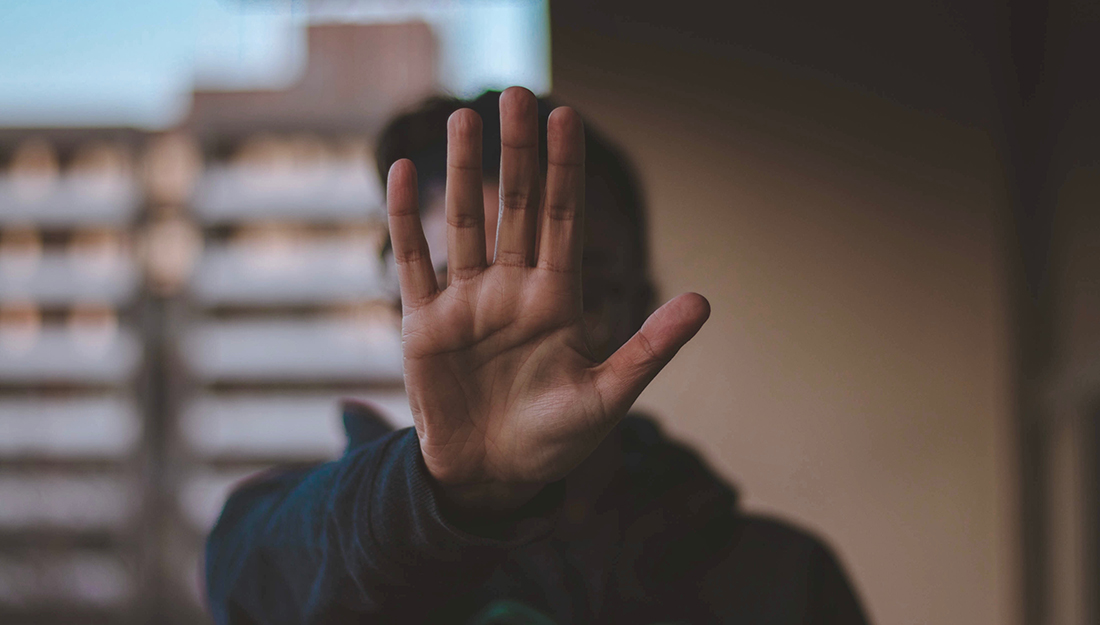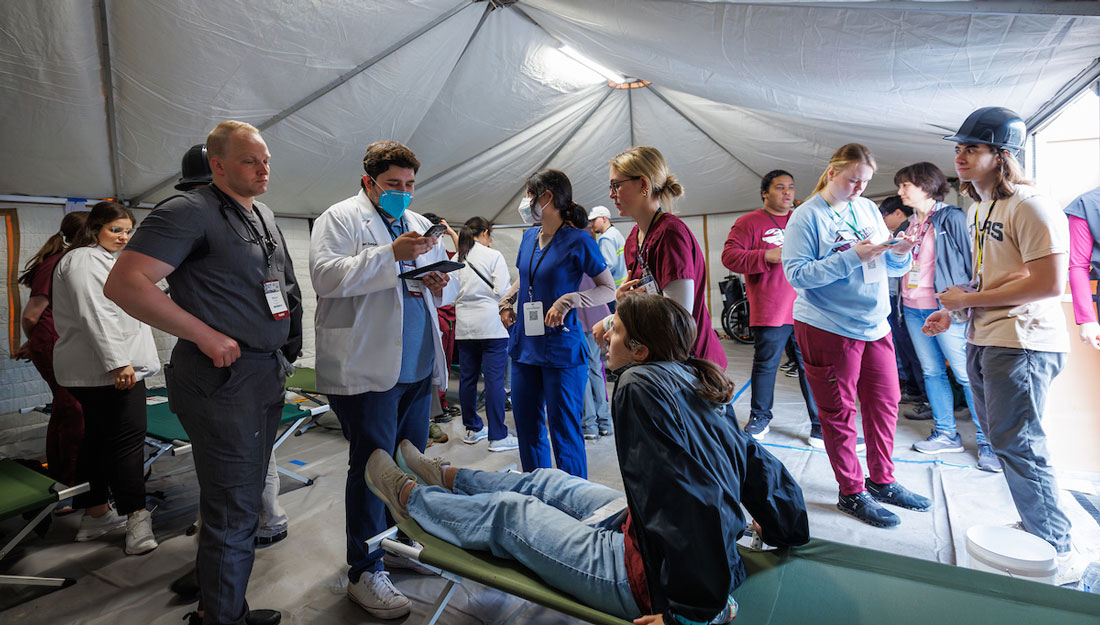- Kala McCain
- COVID-19, Healthy Living, Nursing, Show on VR homepage, Trending
Fast facts: Stopping the spread of COVID-19
A nurse explains how the novel coronavirus spreads so quickly and how you can help flatten the curve

Many states across our nation have issued shelter-in-place or stay-at-home orders. Why is it so important for us to follow these guidelines? Cindy Weston, DNP, RN, CCRN, CNS-CC, FNP-BC, assistant professor and associate dean for clinical and outreach affairs at Texas A&M College of Nursing, explains how it is up to each of us to do our part to reduce the risk of further spread in our communities.
What does it mean to “flatten the curve”?
By doing your part to stop the spread of the coronavirus, you help flatten the curve. In other words, you help to reduce the number of people needing hospitalization for COVID-19 and prevent overburdening our health care system.
Following stay-at-home recommendations directly correlates to a reduced opportunity for additional people to contract the virus. This means you have the power to directly reduce the population able to spread it, Weston explains.
This in turn supports the health care system and its providers as they work tirelessly to assure resources needed to care for patients remain available for those that have tested positive for the novel coronavirus, as well as those who have non-coronavirus related health care needs.
“COVID-19 is not to be feared but it is to be respected. We are all charged with doing our part to prevent spread,” Weston said.
How do I protect myself when I have to leave my home?
Essential items, like groceries and prescriptions, provide legitimate reason and need to leave your home. There are steps you can take to help protect yourself and your loved ones from contracting COVID-19 when you are out and about.
Rather than the entire family going to the grocery store, send only one family member. If you can, opt for curbside pickup and utilize drive-thru services so you can maintain a physical distance of at least six feet between yourself and those assisting you. “This will help greatly in reducing the opportunity for you to come into contact with someone or something that can further spread the virus,” Weston said. “When in doubt, don’t get out.”
If you are an essential employee who must report to a physical location for your job, it is important to follow recommendations outlined by the Centers for Disease Control and Prevention (CDC) to help maintain your wellness and that of your coworkers. It is imperative to adhere to social distancing guidelines:
- Keep six or more feet between you and any other person.
- Use teleconferencing for group meetings as much as possible.
- Consistently wash your hands.
- Avoid the urge to touch your face.
Why is COVID-19 so contagious and so easily spread?
The COVID-19 infection is carried from droplets released when someone sneezes, coughs or laughs. According to the National Institutes of Health (NIH), these droplets can live on a surface for up to three days. This is why it is so important to follow public health guidelines and wash your hands as often as possible—for at least 20 seconds with soap and water—and use a tissue when you sneeze or cough. It is also important to avoid touching your face, especially your eyes, nose and mouth, even if you wash your hands often.
“Touching facial mucous membranes in the nose, eyes and mouth gives the virus a source of entry,” Weston said.
Should I wear a mask or gloves when I have to leave my home?
Wearing a mask and gloves only protects you to a point and, if worn or used incorrectly, actually causes more harm than good, Weston explains. For example, wearing the same gloves from place to place only spreads germs that much farther. The germs you pick up in one store remain on the gloves and pass to each surface you touch after that, increasing the likelihood of spreading the virus. It is much more efficient, reasonable and responsible to wash your hands between each visit to reduce the spread of the COVID-19.
“Gloves were never meant to be reused or worn from place to place,” Weston said. “When used improperly, they can provide a false sense of protection when someone continues to touch their face or other objects and unknowingly increase the spread of the virus.”
Media contact: media@tamu.edu


